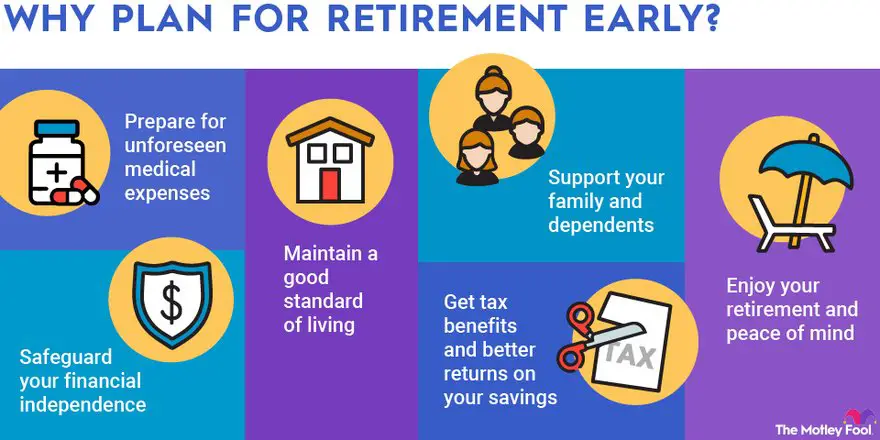Are you a digital nomad who loves the freedom of living and working on the go but struggles with managing your finances? Don’t worry, we’ve got you covered! In this article, we will show you how to effectively manage your finances as a digital nomad. Whether you’re a seasoned traveler or just starting out on your nomadic journey, learning how to manage your finances is crucial to ensure a stress-free and sustainable lifestyle. So, let’s dive in and explore practical strategies for managing your finances as a digital nomad.
How to Manage Finances as a Digital Nomad
As a digital nomad, you have the freedom to work and travel at your own pace. It’s an exciting lifestyle, but it also requires careful financial management. To thrive as a digital nomad, you need to be organized, proactive, and adaptable when it comes to your finances. In this article, we will explore various strategies and tools to help you effectively manage your finances as a digital nomad.
Create a Budget and Stick to It
One of the key aspects of managing your finances as a digital nomad is creating a budget. A budget allows you to track your income and expenses, providing a clear picture of your financial situation. It helps you make informed decisions and ensures that your money is allocated appropriately. Here are some steps to create and stick to a budget:
- Track your income and expenses: Start by tracking your monthly income and all your expenses. Use a spreadsheet or budgeting app to record each transaction.
- Categorize your expenses: Break down your expenses into categories such as accommodation, transportation, food, and entertainment. This will help you identify areas where you can cut back if needed.
- Set financial goals: Determine your short-term and long-term financial goals. This could include saving for retirement, building an emergency fund, or investing in your business.
- Create a monthly budget: Based on your income, expenses, and financial goals, create a monthly budget. Allocate a specific amount to each category and aim to stick to it.
- Track your progress: Regularly review your budget and track your progress. Make adjustments as necessary and celebrate milestones when you reach them.
By creating a budget and sticking to it, you’ll have a clear understanding of your financial situation and be able to make informed decisions about your spending and saving habits.
Establish an Emergency Fund
As a digital nomad, unexpected expenses can arise at any time. It’s crucial to have an emergency fund in place to handle these situations without disrupting your financial stability. Here’s how to establish an emergency fund:
- Set a savings goal: Determine how much you want to save for emergencies. Aim for at least three to six months’ worth of living expenses.
- Automate your savings: Set up automatic transfers from your income to your emergency fund. Treat it as a non-negotiable expense.
- Choose a high-yield savings account: Look for a savings account with a competitive interest rate to make the most of your emergency fund.
- Replenish your emergency fund: If you need to use money from your emergency fund, make it a priority to replenish it as soon as possible.
Having an emergency fund provides peace of mind and a safety net for unexpected expenses, ensuring that you can continue your nomadic lifestyle without financial worries.
Manage Taxes and Legal Considerations
As a digital nomad, you may have specific tax and legal considerations depending on your country of residence and the locations you visit. It’s essential to understand and manage these aspects to avoid any legal or financial complications. Here are a few steps to consider:
- Consult a tax professional: Seek advice from a tax professional who specializes in digital nomad taxation. They can guide you on how to navigate tax laws and ensure compliance.
- Choose the right legal structure: Determine the appropriate legal structure for your business, whether it’s a sole proprietorship, limited liability company (LLC), or another form of incorporation.
- Keep accurate records: Maintain detailed records of your income, expenses, and any relevant tax documentation. This will make it easier to file tax returns and provide evidence if needed.
- Research visa requirements: If you plan to stay in a particular country for an extended period, research the visa requirements and any potential restrictions on working remotely.
- Stay informed on international tax treaties: Understand the tax treaties between your home country and the countries you visit. It can have implications on double taxation and determine which country has the right to tax your income.
By managing taxes and legal considerations proactively, you can avoid potential issues and ensure that you comply with the laws and regulations of the countries you visit.
Use Technology for Financial Management
Technology plays a crucial role in managing your finances as a digital nomad. With the right tools and apps, you can streamline your financial management processes and stay organized on the go. Here are some valuable technologies to consider:
- Accounting software: Use cloud-based accounting software to track your income, expenses, and invoices. It provides real-time insights into your financial health and simplifies tax preparation.
- Expense tracking apps: Utilize expense tracking apps to record your expenses, categorize them, and generate expense reports. This helps you stay on top of your spending and identify any areas where you can cut back.
- Mobile banking apps: Opt for a bank that offers a robust mobile banking app. It allows you to manage your accounts, transfer funds, and track transactions from anywhere.
- Receipt scanning apps: Digitize your receipts using receipt scanning apps. They save you from carrying around a pile of paper receipts and make it easier to track deductible expenses.
- Virtual payment platforms: Use secure virtual payment platforms like PayPal or TransferWise for international transactions. They often offer competitive exchange rates and low fees.
By leveraging technology, you can simplify your financial management processes, save time, and ensure that you have a clear overview of your finances at all times.
Plan for Retirement and Long-Term Investments
While the digital nomad lifestyle offers freedom and flexibility, it’s important not to overlook long-term financial planning. Here are some considerations for retirement and long-term investments:
- Research retirement options: Investigate retirement plans suitable for digital nomads, such as individual retirement accounts (IRAs) or self-employed 401(k) plans. Understand the contribution limits, tax benefits, and withdrawal rules.
- Explore investment opportunities: Research investment options that align with your risk tolerance and long-term goals. Consider diversifying your portfolio by investing in stocks, bonds, real estate, or index funds.
- Consult a financial advisor: Seek advice from a financial advisor who can help you create a personalized retirement and investment strategy based on your unique circumstances.
By planning for retirement and making smart long-term investments, you can secure your financial future while enjoying your digital nomad lifestyle.
Stay Educated and Continuously Improve
As a digital nomad, it’s essential to stay educated about personal finance and continuously improve your financial management skills. Here are some ways to expand your knowledge:
- Read financial blogs and books: Follow reputable financial blogs and read books on personal finance to learn new strategies and gain insights from experts.
- Attend financial webinars or workshops: Take advantage of online webinars or workshops that cover various financial topics. They can provide valuable information and practical tips.
- Network with other digital nomads: Connect with fellow digital nomads who have expertise in managing finances. Share experiences, exchange advice, and learn from each other.
- Reflect and evaluate: Regularly reflect on your financial journey, identify areas for improvement, and set new financial goals.
By staying educated and continuously improving your financial management skills, you can adapt to changing circumstances and make informed decisions for your financial well-being.
Managing finances as a digital nomad may seem challenging at first, but with careful planning, organization, and the right tools, it becomes manageable and rewarding. Take control of your finances, stay proactive, and enjoy the freedom of the digital nomad lifestyle while securing your financial future.
Streamline Your Digital Nomad Finances [Finance Spreadsheet Included]
Frequently Asked Questions
Frequently Asked Questions (FAQs)
How can I manage finances as a digital nomad?
Managing finances as a digital nomad requires careful planning and organization. Here are some strategies to help you:
What are the key financial considerations for digital nomads?
As a digital nomad, it is important to consider factors such as budgeting, tax obligations, currency exchange, and emergency funds.
How can I create a budget as a digital nomad?
To create a budget, start by calculating your regular expenses such as accommodation, transportation, food, and healthcare. Include variable expenses like travel and entertainment. Use budgeting apps or spreadsheets to track your expenses.
What are the best ways to save money as a digital nomad?
There are several ways to save money as a digital nomad. These include finding affordable accommodation options, cooking meals instead of eating out, using public transportation, and taking advantage of travel rewards programs.
What are the tax implications for digital nomads?
As a digital nomad, you may be subject to tax obligations in your home country as well as in the countries you visit. It is important to familiarize yourself with the tax laws and requirements of each country and consider consulting a tax professional.
How can I handle currency exchange while traveling?
There are various options for handling currency exchange while traveling, such as using local ATMs, exchanging currency at banks or currency exchange services, or using digital payment methods like PayPal or TransferWise.
Should I have an emergency fund as a digital nomad?
Having an emergency fund is crucial for digital nomads. It provides a safety net in case of unexpected expenses or emergencies. Aim to save at least three to six months’ worth of living expenses.
What are some strategies for managing income as a digital nomad?
Consider diversifying your income sources by taking on multiple clients or projects. Set up automatic payments or reminders for invoices and keep track of your earnings using accounting software or spreadsheets.
How can I ensure financial security as a digital nomad?
To ensure financial security, it is important to have a clear financial plan and goals. Continuously evaluate your expenses, regularly save for the future, and consider investing in retirement plans or other financial instruments.
Final Thoughts
Managing finances as a digital nomad requires careful planning and organization. Start by creating a budget that accounts for all your expenses and income streams. Utilize digital tools like mobile banking apps and expense tracking software to stay on top of your financial situation. Prioritize saving for emergencies and future goals by setting aside a percentage of your income regularly. Additionally, consider diversifying your income sources to mitigate risks. Stay informed about tax regulations and ensure compliance with the relevant laws of your home country and the countries you operate in. By staying proactive and actively managing your finances, you can secure a stable financial future as a digital nomad.



